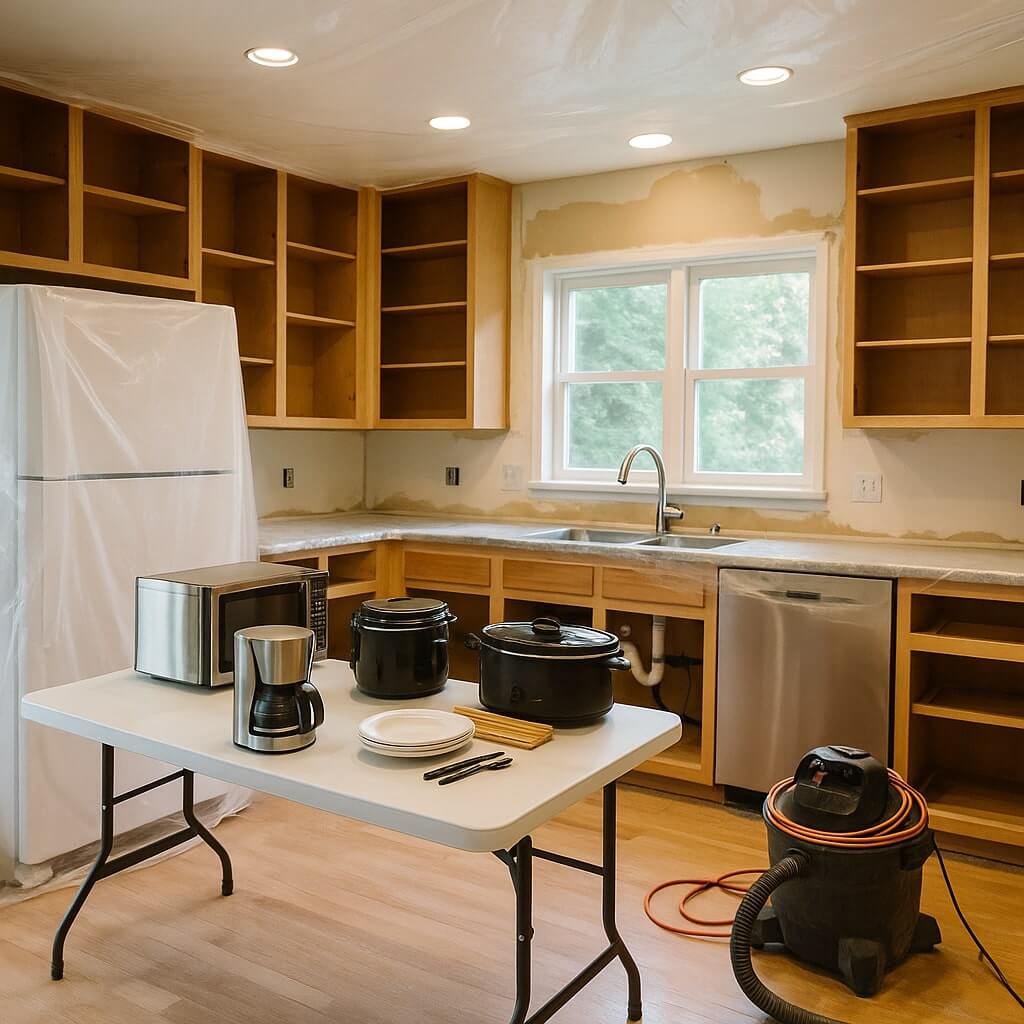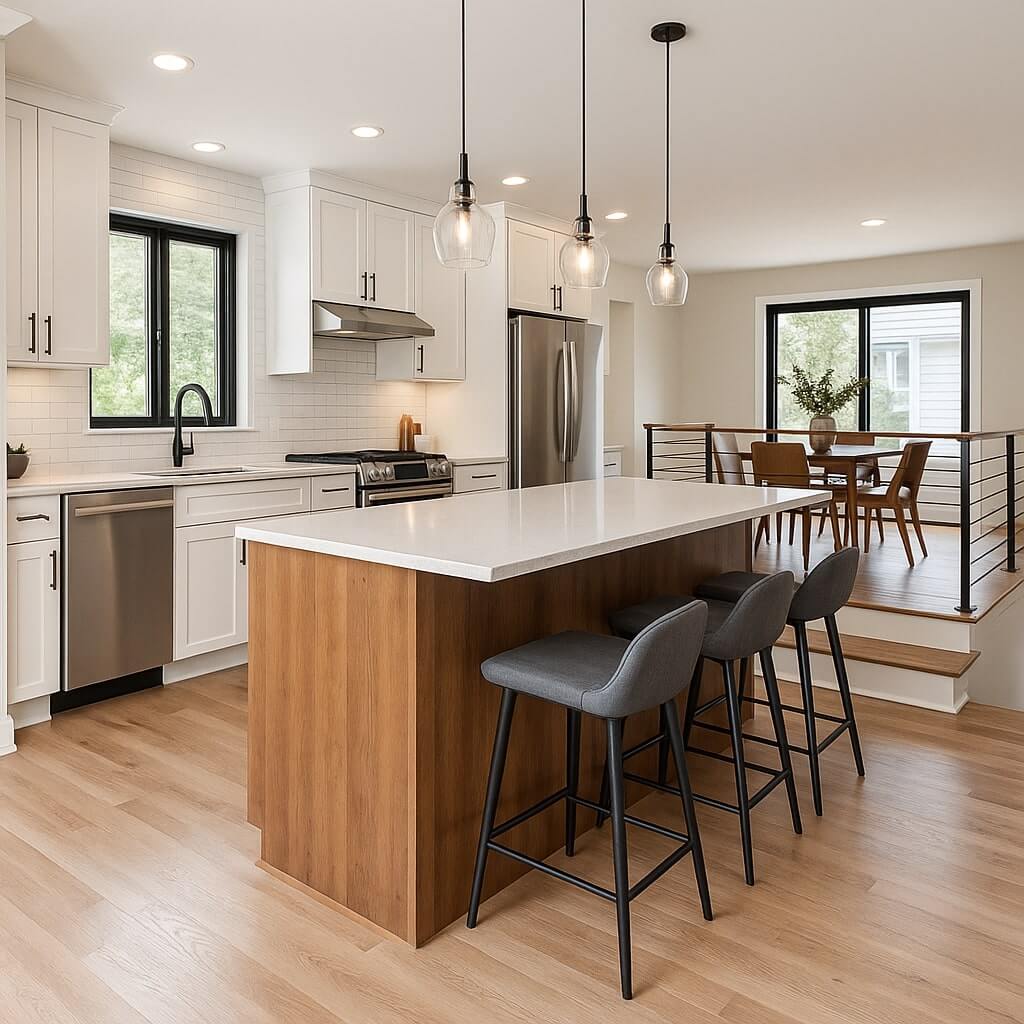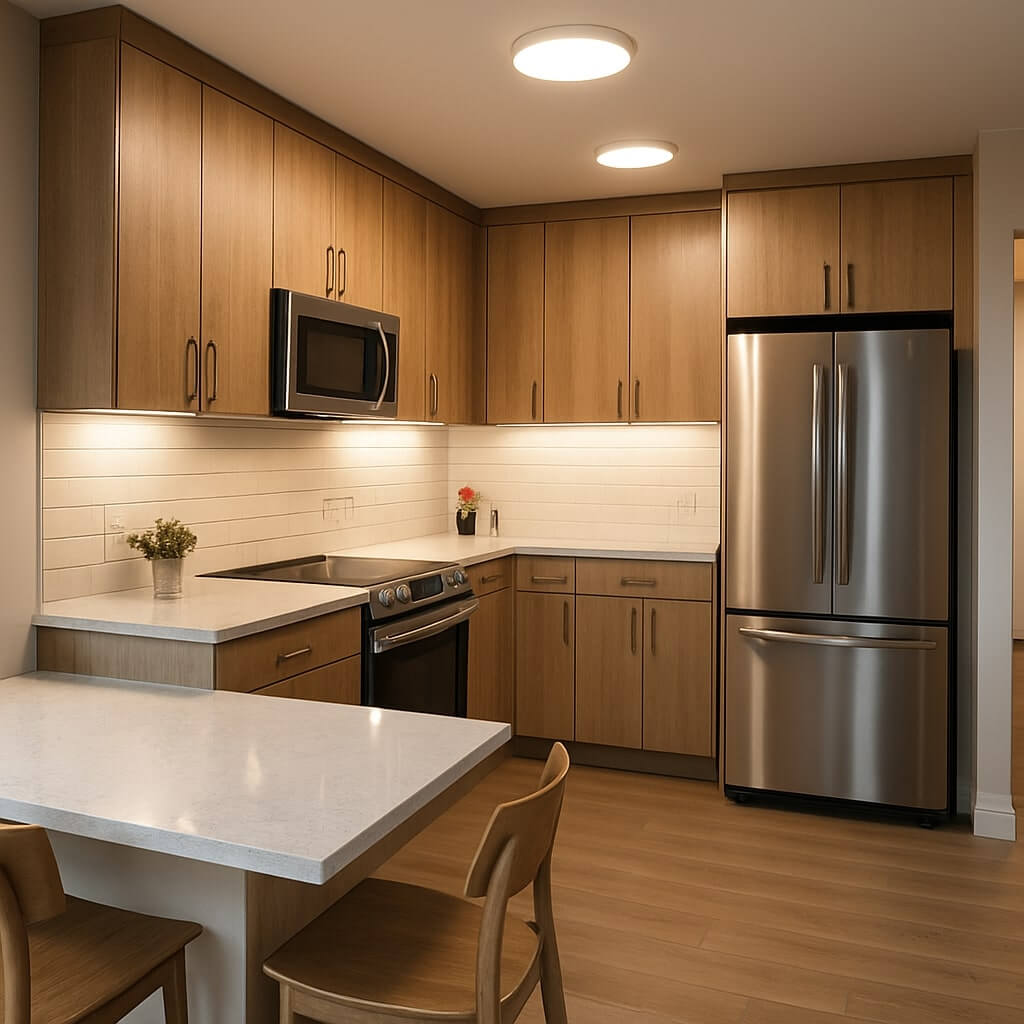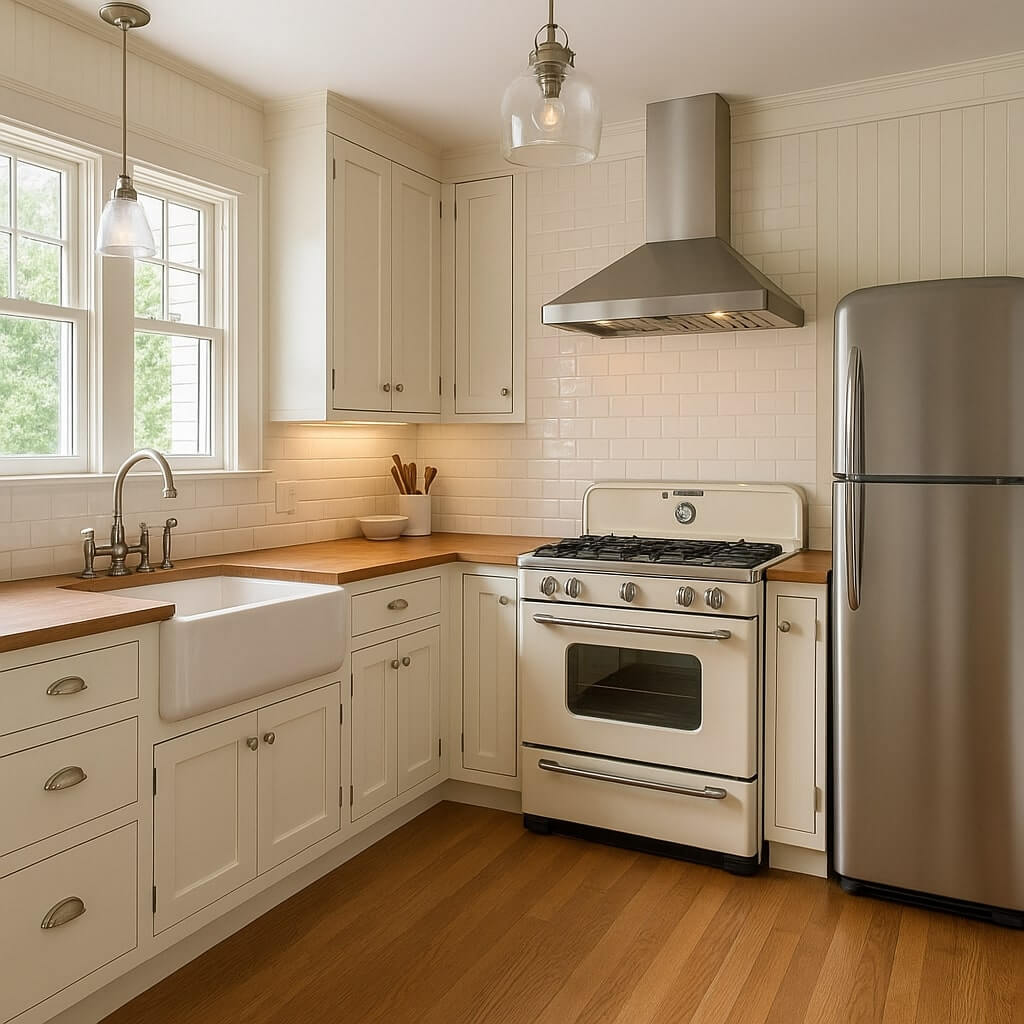A kitchen remodel can transform your home and significantly boost its value. But surviving the process? That can be challenging. Between dust, noise, disrupted routines, and temporary loss of a functioning kitchen, it’s easy to feel overwhelmed. The good news is—with the right planning and mindset, you can make it through with your sanity intact.
In this article, we’ll share practical tips to help you navigate every stage of your kitchen renovation, from preparation to the final reveal.
Plan Ahead for a Smooth Remodel
The first step to surviving a kitchen remodel is preparation. The more you plan ahead, the fewer surprises you’ll encounter.
Set a Realistic Budget and Timeline
Be sure to set a realistic budget that includes a contingency for unexpected expenses—typically 10–20% of your total budget. Timelines can also shift due to material delays or unforeseen issues, so build in extra time to avoid frustration.
Choose the Right Contractor
Do your homework when hiring a contractor. Look for someone with excellent reviews, clear communication, and experience with kitchen remodels. A great contractor will help keep your project on track and reduce stress.
Communicate Clearly
Have an open line of communication with your contractor and tradespeople. Set expectations regarding work hours, project updates, and access to your home.
Create a Temporary Kitchen Space
Since your main kitchen will be out of commission, setting up a temporary kitchen is a must.
Select a Space
Choose an area like a dining room, basement, or even a corner of the living room where you can prepare simple meals.
Gather Essential Appliances
Equip your temporary kitchen with essentials such as:
- Microwave
- Toaster oven
- Electric skillet or hot plate
- Coffee maker
- Mini-fridge or cooler
Stock Up on Supplies
Stock disposable plates, utensils, and napkins to minimize dishwashing. Also, prep some freezer meals or rely on meal delivery services for busy days.
Protect Your Home from Dust and Debris
Renovation dust can spread fast. Take steps to protect your living spaces.
- Seal off the work area with plastic sheeting
- Cover furniture with drop cloths
- Use HEPA filters in your HVAC system
- Clean frequently to maintain air quality
Manage Expectations and Stay Flexible
No remodel goes 100% as planned. Stay flexible and mentally prepared for unexpected delays or changes.
Keep a Positive Mindset
Focus on the end result—a beautiful new kitchen—and remind yourself that the disruption is temporary.
Maintain a Routine
Stick to your regular routines as much as possible. Keeping some structure can help maintain a sense of normalcy during the chaos.
Take Breaks When Needed
If the renovation stress becomes too much, consider taking a short getaway. A weekend trip or even a day out can provide a much-needed mental reset.
Frequently Asked Questions (FAQ)
Most kitchen remodels take anywhere from 6 to 12 weeks, depending on the project scope and whether you’re doing a full renovation or minor updates.
Avoid making major changes to the design after construction has started, as this can lead to delays and extra costs. Also, don’t skimp on protective measures for your home.
Yes. Setting up a temporary kitchen makes daily life easier and saves money compared to eating out for every meal during the renovation.
It depends on the project scale. For major renovations, or if you’re highly sensitive to dust and noise, moving out temporarily might be a good option.
Conclusion
Surviving a kitchen remodel is all about preparation, flexibility, and keeping your eyes on the prize. By planning ahead, setting up a temporary kitchen, protecting your home, and maintaining a positive mindset, you can minimize stress and stay sane during the process.
Remember—every inconvenience is a step toward creating the beautiful, functional kitchen you’ve always dreamed of. With these practical tips in hand, you’ll be ready to tackle your renovation with confidence.




